Britain’s most ethical restaurant doesn’t have a bin. Founded by ex-St John chef Dougie McMaster, the team at Silo brews its own booze, mills its own flour, churns its own butter and even has chairs made from jeans and plates formed from plastic bags.
At the UK’s first ever zero waste restaurant, all materials are digestible by us or ‘Bertha’ – its ravenous £22,000 communal compost machine.
We travelled to Brighton to sit at the Retford-born international chef’s table – and chew the fat on his pre-industrial “futuristic medieval” food system, caveman cooking, a pirate ship kitchen atmosphere and the omnivore question. This is what he had to say.
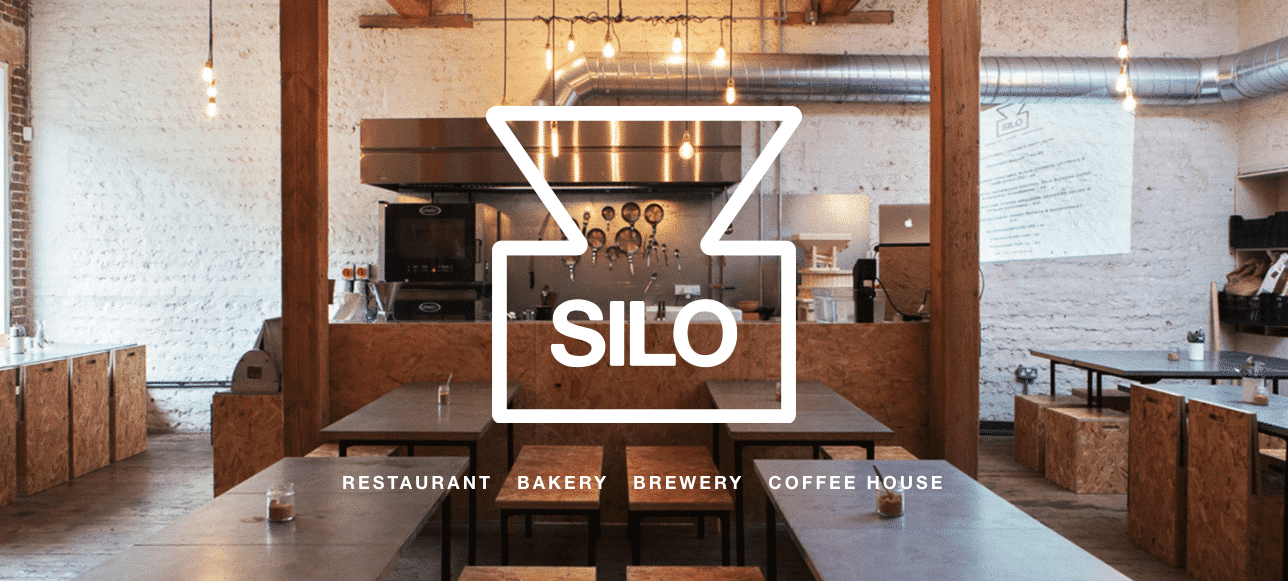
Restaurant of the future
Dougie McMaster:
We ruffle a lot of feathers. Silo is radically different from every other sustainable business, which often latch onto one aspect of sustainability to get kudos – whether it’s a seasonal menu, locally sourced, or organic. But with us it’s a holistic idea, like a moral compass. We question every material that’s wasted. I look at objects and see value in them when others see waste.
I could be holier than thou and move to the countryside. I could have a cow, some chickens, harvest rain water and serve ten people a night and tell myself that this is the utopian food system. It would be zero waste, easy, self-righteous and picturesque! But it’s ignoring the problem of 9 billion people moving to the city and not having enough food. So I see the importance of being in an urban environment.
I want to do extreme, crazy shit, like serve jellyfish. But it’s about finding the sweet spot in commerciality. What can we do with our big ideas to most effectively create change? Making that accessible and economically stable is a key part. Is it going to survive in a commercial market that’s full of the successes of Nando’s and McDonalds?
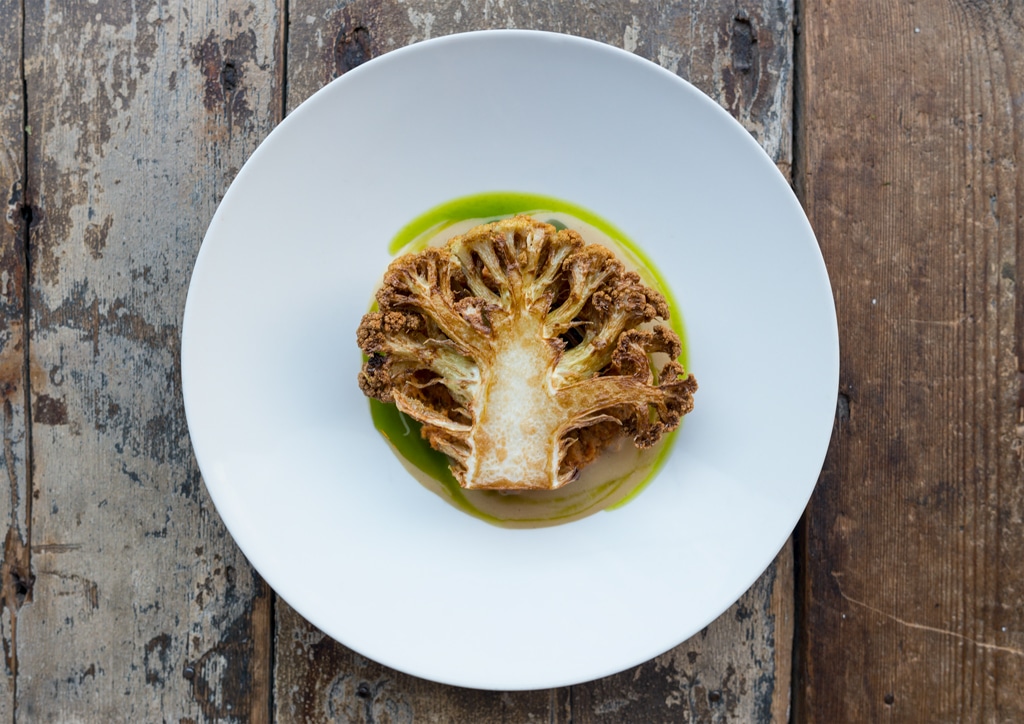
Cauliflower steak: what Instagram was made for
People are obsessed with cheap. That’s part of an industrial society, which breeds an unrealistic price point. There is no such thing as cheap food. If it’s cheap for you to go a Toby Carvery and pay £5 for 2 main courses with big slabs of meat on it, that is not a true cost. It’s costing you in ill health and the costs on the environment are almost invisible.
It’s important not to force information down throats. We don’t take ourselves too seriously – we have fun and try to be exciting and creative. You can tone everything to a low frequency, to a language that everybody understands. That’s what the big companies know. They know to sell a product that people understand which is fine (well it’s questionably fine), but it’s really important to stay true.
I’ve done this with no money or experience. I’ve fluked it! Silo is rough around the edges because I didn’t have a lot of money. It’s not government-funded, it’s done by the grit of our teeth. We opened this for a very small amount of money, which demonstrates that to be environmental or a success, you don’t need huge amounts of money behind you. I re-mortgaged my house to open this place. I was only 26 when I started opening. I’m 30 now and it’s become a cauldron of creation.
They say you’re most creative when your back’s against the wall. And that’s the story of this place. That challenge of being limited forces you to think broader, think bigger, think creatively, think round corners.

A cauldron of creation you can drink
Bertha is our state-of-the-art compost machine. She turns up to 60 kilos of organic waste into compost in one day, something that gives life and grows new food, as part of a closed loop mentality. To be honest, we don’t touch the sides, even though we get food waste from loads of other restaurants in the area. The communal compost machine is the big innovation, but it’s also archaic – like futuristic medieval food.
Silo has been certified as 95% organic. Everything that comes in here is an unprocessed as it can possibly be. When food is processed, it’s packaged and we don’t accept packaging. We make yoghurt, do fermentation workshops and ferment everything. We brew all our own drinks, like kefir, kombucha, ale, ebulus, cider and mead. All these drinks are made from whole ingredients, apples, elderflower and mineral water.
Caveman cooking has given birth to process. I believe in the fine dining world we’ll see the next five years become more about processing food ourselves. It’s not just me saying this, but also the world’s best chefs, like Magnus Nilsson – who has refocused the lens of the kitchen to a primitive preparation of food. He’s very hunter-gatherer, he catches everything, and it’s all very wild.
It’s a common saying that every chef should go and work on a farm. In just a few days you can see how much energy and love goes into growing a simple turnip or a simple apple. It’s back-breaking work. And in the kitchen you can learn to understand the love that goes into milling flour and to churning butter and making yoghurt and fermenting and rolling to make the end product.
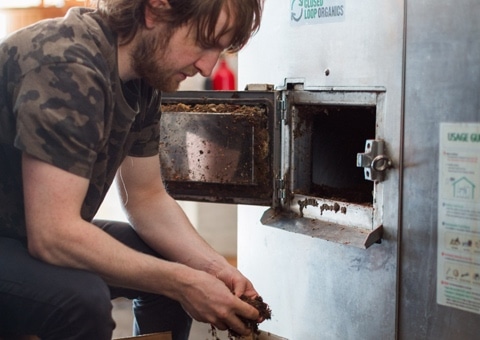
Meet Bertha
We’re super Instagram-friendly. When we opened people told us how lame is it to drink out of jam jars because it’s just so trendy and photogenic!
I learned about school table politics. The yellow socks on our table legs represent where we’ve cut three inches off primary school tables and welded them together. Too short or scratched, they were going straight to a landfill because of some silly legislation. They didn’t think to re-spray them. It’s just ridiculous.
We did a lot of calculations on napkins! We looked into the energy and water waste that went into if we got little rags and washed them every day. It was more viable to get paper napkins and compost them. It’s important to think about everything.
Our plates are made of plastic bags. 40 bags go into one plate and they’re so beautiful. When we opened I was thinking so far out of the box. We had these really uncomfortable chairs, so we posted on Facebook asking for used denim jeans and tights. People came with 100 pairs. Lo and behold we made these cushions with friends and family.
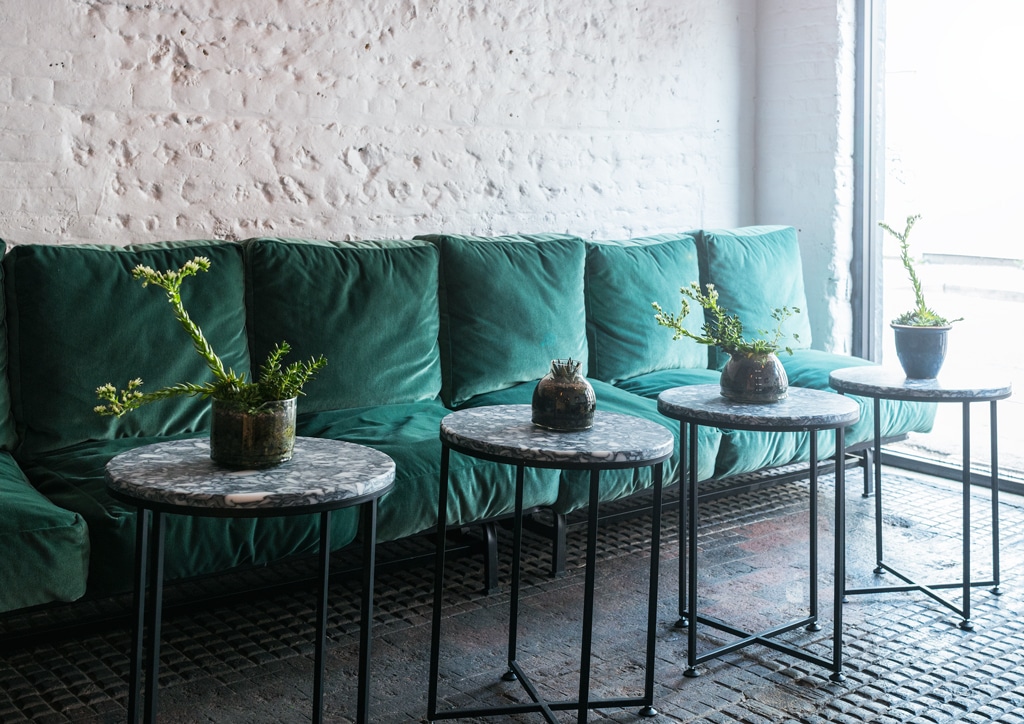
A load of Levis, Lees and Wranglers went into these chairs
It’s not a very glamorous thing to say I’m from Retford. I get told off when I say Sheffield. My mum will shout at me, “You’re not from Sheffield!” But that’s the closest city.
I’m dyslexic and dyscalculia and dys-everything. My dad was an artist and a classic example of a bit of an anarchist. I do not take well to being told what to do. As soon as somebody tells me what to do I do the absolute opposite and rebel. I fell out of school at 16 and fell into a kitchen because it wfas the only place that would have me. It’s the story for a lot of chefs.
No one should tell anyone that food can’t be art. I hate it when chefs say food’s just food. I’m like, “No, rubbish!” You can choose to express yourself in any way – your hairstyle, in the way you walk, in the food you put on your plate.
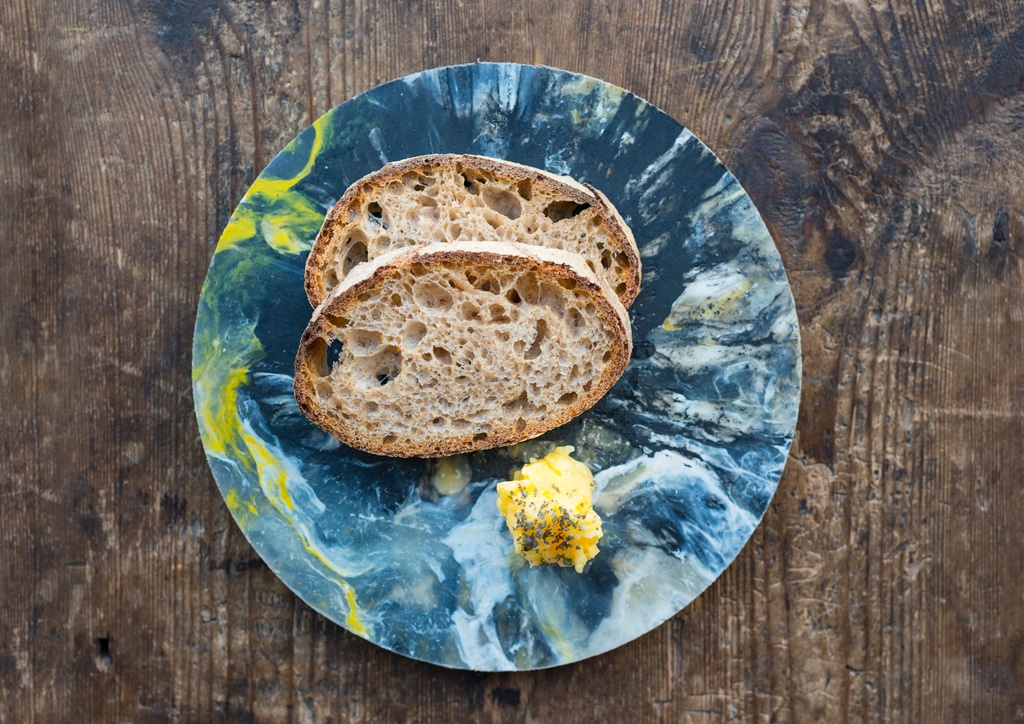
You’re looking at 40 plastic bags
I learned by watching proper Jedi cooking. I did the rounds of Michelin-starred restaurants in the north of England, where I’m from. Then my friend convinced me to go work at St John in London. I was a 20-year-old lad who thought St John was crap! Where were the dots and the foam and the precise anything? Working there very quickly changed my perspective. It was proper Jedi cooking, cooking with instinct. Like in the film Star Wars when they tell him to take off the mask and use the Force.
I fell in love the extremity of the simple idea of nose to tail – and with how intelligently designed St John was; white walls, no tablecloths. Once upon a time it meant nothing to me and then it meant everything.
I went on a food pilgrimage and ate the world. My mind was loving thinking big, broadening the mind as far as it could go to really understand food cultures. I got to nine of the top 15 restaurants in the world. I picked a lot of Nordic restaurants because I loved natural food. I didn’t like molecular gastronomy, even though I’d done a lot of it. I went and worked a day, a week, a month. I went to Noma and to all of those elite restaurants in Scandinavia. I did 6 months in Sydney in a restaurant called Quay. But the real game changer was Mugaritz in San Sebastian. It taught me that food can be literally anything.
I fell in love with the pirate ship atmosphere in kitchens. I’d been used to being in classrooms and being told what to do and being miserable. All of a sudden, I had a voice. I liked the loud music and the swear words. It felt free, even though it wasn’t. You still have to be on time and achieve what they need you to do. It just felt expressive!

Pirates don’t tidy up this well
“Are we omnivores?” is the biggest question. One of my biggest passions is learning about evolution of humans, how our bodies have evolved and what is the human diet. There isn’t a clear answer in my mind. Or in anyone’s mind. If we are omnivores, where is it going wrong and why is there such a strong movement to veganism?
I was vegan for a year, and I felt amazing. I highly recommend it to anyone. Because I opened Silo, I knew that fundamentally, the true pure future food system does involve animal agriculture. The best and most sustainable agriculture is ones with cattle or animals involved and ignoring that is fundamentally not what Silo is about.
Silo is a restaurant of the future. We’re providing an example. But there are better examples of restaurants that deal with the immediate issue, like The Real Junk Food Project – a brilliant initiative that take waste that’s literally going to landfill and feeds people that can’t afford food. Now that is an immediate reaction.
We need to support credible forms of agriculture. Whether it’s a really good organic farm, a re-wilding sanctuary, foraging or food sources that need to be supported. In the future, ideally all agriculture would be non-industrial and natural (a better word than organic) – and that’s what we need to. If the planet’s not going to melt, then that’s what needs happen in the future.
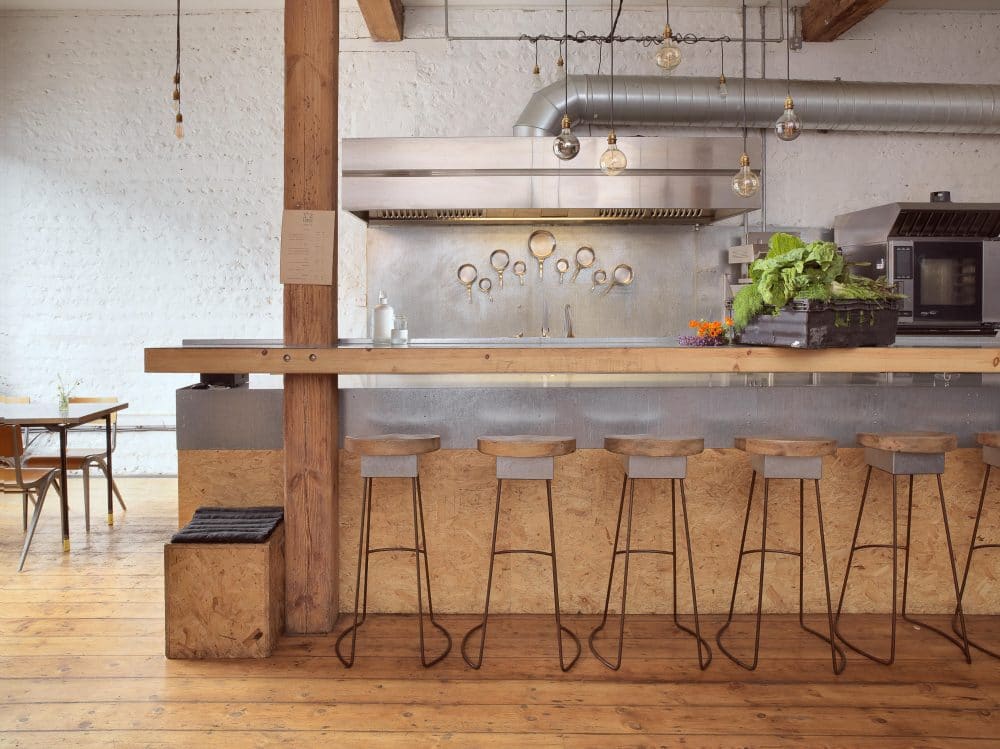
Spot the yellow socks on table legs
There are two big problems in the world – industrialisation and capitalism. Both can be brilliant. They aren’t evil, it’s only when greed comes into the equation it goes wrong.
The picturesque idea of a man and a tractor and a cute little farm is outdated. That’s when the world was 5 billion people or less. The question is, what’s a good scale for a food system nowadays? I really always feel intuitively it’s county size. Supporting a system where 95% of the produce comes from Sussex is an accurate scale that’s sustainable.
Would I franchise Silo? I’d love 100 zero waste restaurants, but it goes against the fundamental principles. I think five restaurants would be more realistic. I would never, ever like the idea of more. The simple idea of having compost being made on site, that is Silo. That could go all over the world. However, I definitely won’t give in. I do care about money, but not over value and pride and doing the right thing.
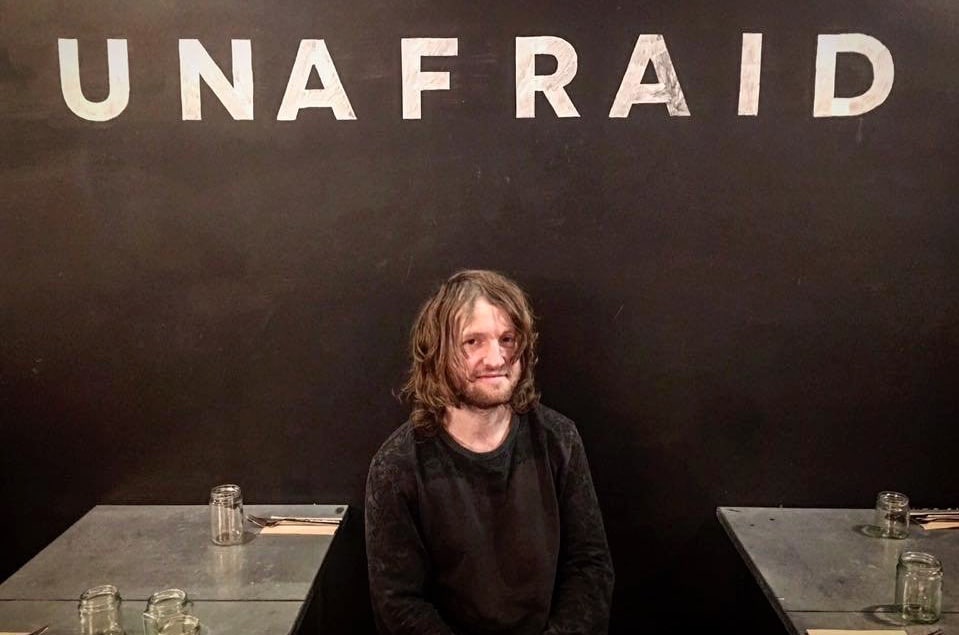
You’re most creative when your back’s against a wall (that says UNAFRAID)
AtlasQs: In his ongoing research, Dougie has some questions for vegan friends.
1. Would you consider eating insects?
2. Would a vegan diet entertain oysters? (They benefit the environment and have no brain or nervous system.)
Comment below to get an Atlas avatar.
Read more of our FutureHero interviews here. Last photo credit: Lisa Goldapple. All other photos: Xavier Buendia at xdb Photography.
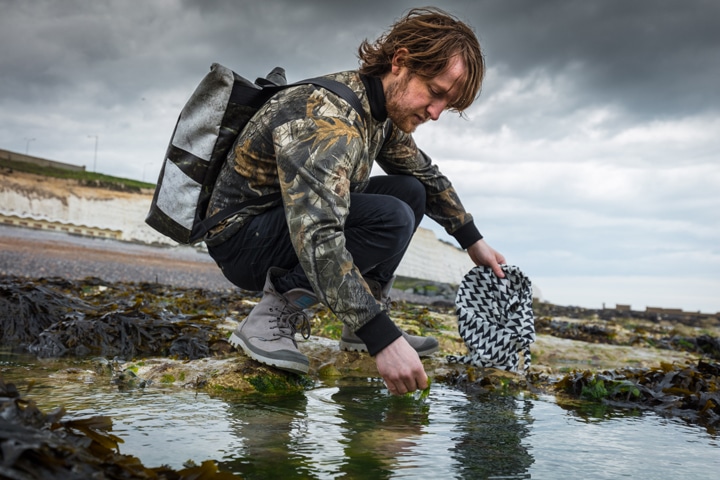

Respect
The ethos behind Silo is great but animal agriculture is environmentally unsound and therefore unsustainable. Silow ould be ethically improved if it only served plant based food.